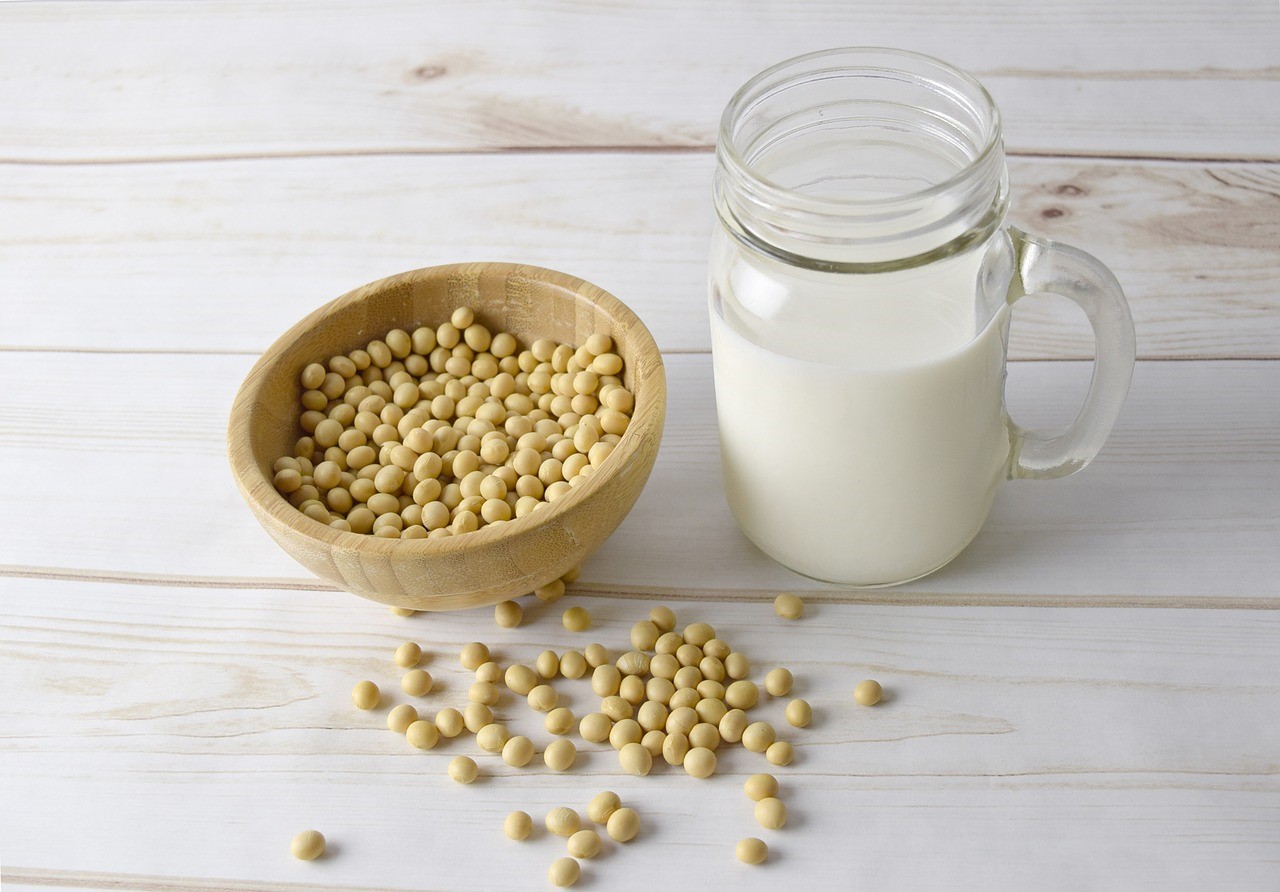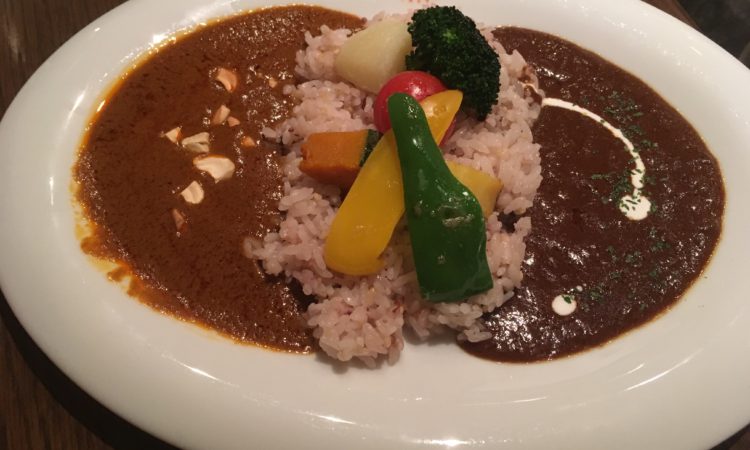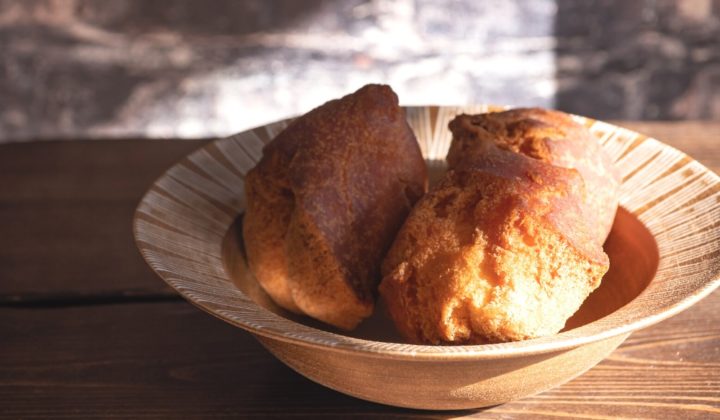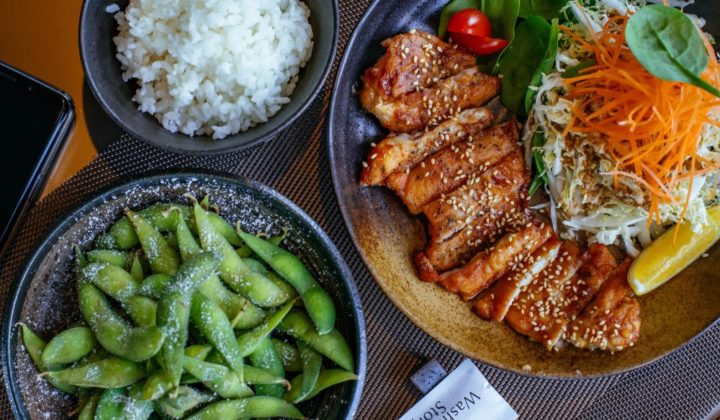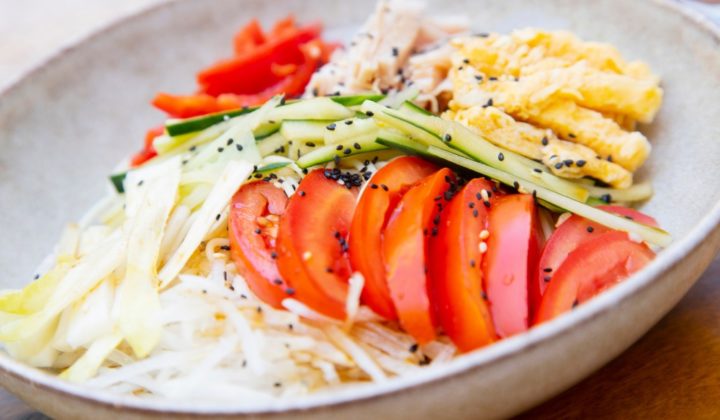This post is also available in:

Vegans, Do You have trouble finding food ingredients in Japanese supermarkets?
The first time you enter a Japanese supermarket can be intimidating for anyone who can’t read Japanese, but especially a vegan. You can’t simply “eyeball” something and assume it’s safe! There have been countless times where I’ve thought something was vegan, later to find out it had dairy, eggs, or fish in it. While never personally a strict vegan, eating and buying groceries in Japan has meant being on the more lenient side of a plant-based diet. While the awareness of veganism and the availability of vegan-friendly food is increasing little by little here, shopping is still very restrictive. That being said, I’ve compiled a list of some of my favorite vegan staples that are available in a lot of supermarkets – at least in the region of Tokyo.
1. Vegan Cheese
Much to our delight, recently there’s been an inexplicable surge in soy-based vegan cheese products in Japanese supermarkets.
One that everyone can’t praise enough is a shredded cheese called “私のヴィーガンシュレッド” (meaning “my vegan shred”). It’s delicious, it tastes like real cheese, and can be melted onto the likes of pizza and pasta. What’s more, it’s only ¥300 and unlike real cheese, it’s cholesterol free!
Another one that’s been popping up across Tokyo is “Sagamiya” (相模屋 in Kanji), which offers soy-based mascarpone and burrata. Owned by the same brand is “Beyond Tofu”. They currently offer a cubed cheese and parmesan. These are all under ¥300!
Sagamiya cheese is easy to spot as a vegan (despite Sagamiya’s name being written in Kanji!) as its packaging contains English. But the first brand, “私のヴィーガンシュレッド” is written in Japanese and blends in with its surroundings – so be sure to be on the lookout! Sagamiya cheese has been spotted in Aeon, Ito-yokado, and Maruetsu.
Also: be sure to check your local Lawson/Natural Lawson for their own brand of vegan mozzarella!
2. Tofu

It’s safe to assume you are probably familiar with tofu but just in case: it’s soybean curds. Don’t be put off by the description – it’s delicious! And it’s also a wonderful source of vegan protein and provides a good amount of minerals, including iron, copper, manganese, and selenium. Tofu is versatile as its flavor is very mild and there are many different textures, ranging from silken (i.e. super soft) to extra firm.
Because of its versatility, you can eat it with any dish you like! Traditional Japanese dishes with tofu includes miso soup, hotpots, or by itself fried or cold. Tofu has also become popular worldwide and is included in many different types of cuisines, from Thai to Mexican.
3. Miso paste
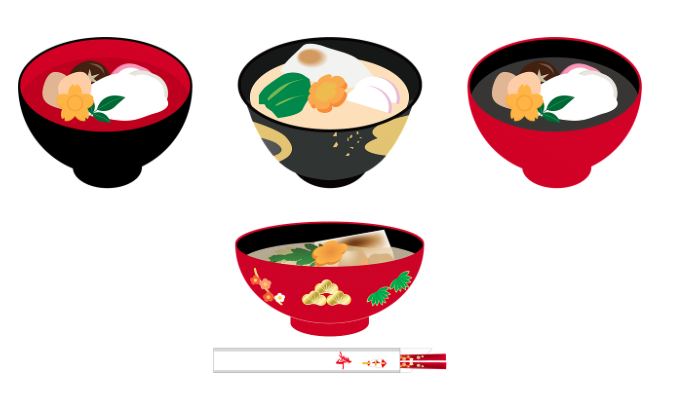
This salty and umami-filled paste is made from fermented soybeans and is the main ingredient in miso soup. Pre-packaged miso soup itself isn’t vegan, as it consists of miso paste, seaweed, and fish broth, but you can just buy miso paste and seaweed and mix together with boiling water!
Miso soup is the perfect snack, as it’s light and healthy, yet filling. It’s packed with nutrients too, including friendly gut bacteria! The culinary uses of miso paste doesn’t stop at miso soup, you can add it to any soups, stews, curries and it makes a moreish marinade for tofu.
4. Oatmeal
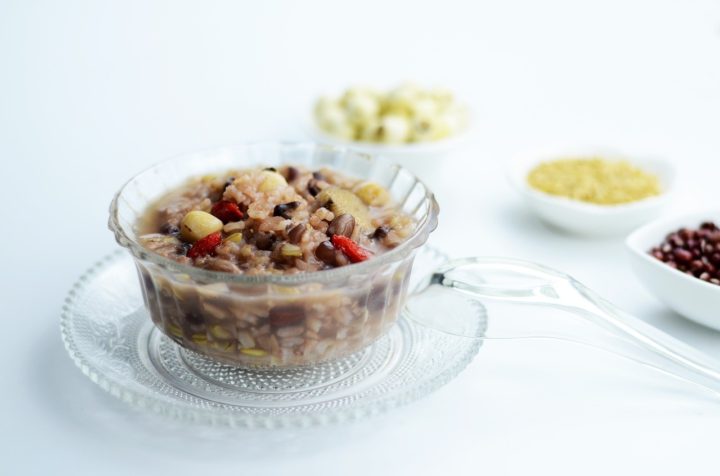
For many vegans, oatmeal is a staple breakfast food. It’s relatively cheap, nutritious, and filling; what’s not to love?! You’ll find oatmeal next to the cereal in supermarkets. Another reason why oatmeal is a recommended staple is that you can personalize it so that you never get bored! There are just so many different toppings such as apple, banana, berries, nuts, chocolate, cinnamon, maple syrup… The possibilities are literally endless.
It’s also a quick and easy meal, especially if you do overnight oats. As overnight oats are served cold, these are particularly satisfying in the hot and sticky summers (tip: I love topping it up with my favorite soy milk, it’s delicious!).
5. Frozen Fruit & Vegetables

If you’ve lived in Japan for any amount of time, you’ll know that fruit and vegetable prices can be extortionate. It can be a pain, especially if you’re used to eating a variety of fresh produce. But not to fret, the longer you’re here, the savvier you’ll be with finding “seasonal” prices – the prices fluctuate depending on when the fruits are grown.
However, if prices are currently particularly high for a certain fruit or vegetable, try the frozen counterpart. It tends to be cheaper, you get more in the bag and it won’t go bad any time soon! Plus the fact, if you’re a smoothie drinker, frozen fruit and vegetables are arguably better: it means you don’t have to use ice in your smoothies.
6. Soy milk
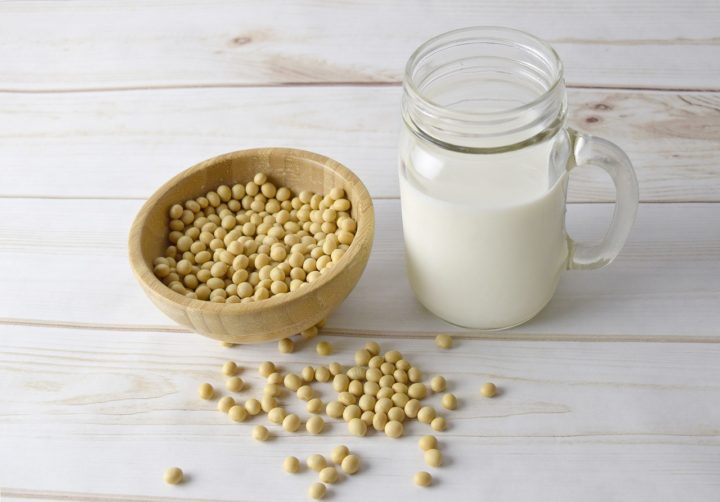
One of the most popular vegan foods nowadays is almond milk, as you can use it in the likes of oatmeal, coffee, and cooking. Sadly, almond milk is quite expensive and other types of plant-based milk remain unavailable in Japan. But not to fear, as there is an extensive (and we mean extensive) range of soy milk in Japanese supermarkets! If you are a strict vegan, you need to be careful, as a lot of soy milk includes non-vegan stabilizers and emulsifiers.
Kikkoman (キッコーマン, their logo is three trees, a bird and a red sun) has strictly vegan soy milk, look out for the pale yellow carton that reads: “おいしい無調整豆乳” (delicious unmodified soymilk). Another brand, Marusan (their logo is a smiley face wearing a cute party hat, also has a strictly vegan soy milk called “有機豆乳無調整” (organic unmodified soymilk). It’s also pale yellow and has a graphic of green plants sprouting. And a third one which is in a lot of supermarkets is Otsuka’s (大塚) “スゴイダイズ 無調整タイプ” (Amazing unmodified soymilk). It has a graphic of the island of Hokkaido, filled with a picture of soybeans.
If you’re not 100% strict, Kikkoman has a vast array of flavored soy milk which are ridiculously delicious! Common flavours include coffee, cocoa, banana, matcha, ice cream… and many more. There are also exclusive flavours that are only out for a short time, like cherry blossom or cola. These are available in more or less every supermarket.
7. Chocolate

As you may come to realize, the vegan options in supermarkets tend to be accidentally vegan, not necessarily because the brand is purposely being vegan-friendly. For such a reason, there isn’t much in the way of vegan milk chocolates.
But there are some dark chocolate options (and they tend to be just as sugary as milk chocolate). Meiji chocolate offers some options: their 72%, 86% and 95% cacao chocolates. Still, these are not entirely vegan as the label warns that there may be dairy products present in the factory. Meiji’s THE Chocolate line has the same warning, but if that’s okay with you, Comfort Bitter, Elegant Bitter, Blossom Bitter, and Yuzu (Japanese citrus fruit) flavor.
Are You Looking Forward to Your Next Hunt for Vegan Food Staples at the Japanese Supermarket?
It’s definitely challenging to remain vegan in Japan. The average Japanese diet is meat-centric, and even if something doesn’t include meat it probably includes dairy, eggs or fish extract. It’s even more challenging if you can’t read the packaging! However, with information readily available online and advice from others living in Japan, it’s becoming a little easier to find vegan products in supermarkets. An annoying factor is that you might see an amazing vegan product in one supermarket and then never see it again, but this article has featured vegan foods which are readily available throughout Tokyo supermarkets. This means these foods are easy to incorporate into your weekly groceries!
Do you have any vegan supermarket staples? Are they available in many supermarkets in Japan? I’d love to hear about your own staples!

